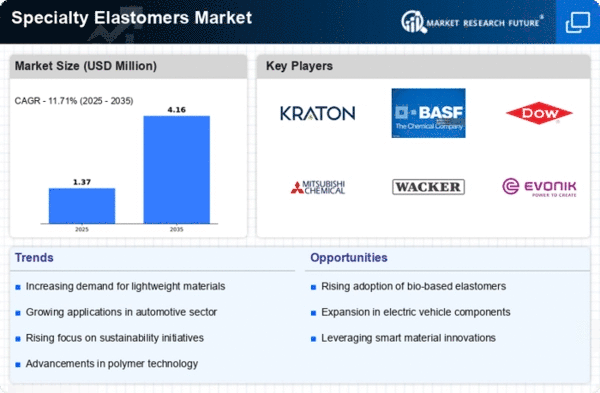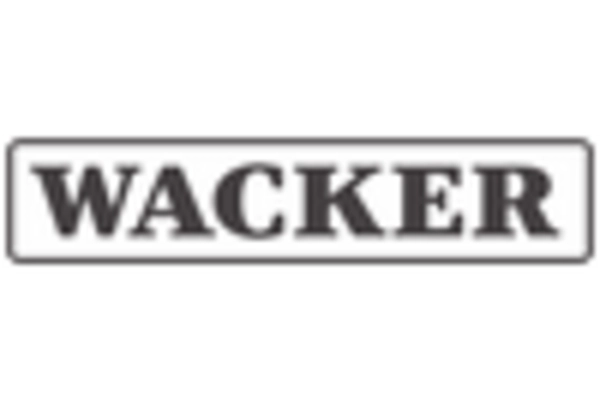Market Share
Specialty Elastomers Market Share Analysis
Companies competing in the Specialty Elastomer market must develop successful market share positioning strategies. Companies often differentiate their specialty elastomers from competitors. This may involve generating new formulas, improving product performance, or making industry-specific elastomers. Companies can gain market share and loyal customers by offering unique features.
Pricing methods also affect Specialty Elastomer market share. Some companies use cost leadership to attract a wide client base by offering high-quality elastomers at low prices. However, enterprises highlighting superior quality, advanced characteristics, or unique uses may target niche consumers willing to pay more for specialized elastomers using premium pricing techniques.
Distribution routes are vital for market share positioning, thus corporations optimize their reach. Strategic partnerships with distributors, manufacturers, and retailers can make specialty elastomers more accessible. An effective distribution network increases market share by improving accessibility and visibility.
In the Specialty Elastomer market, firms spend in R&D to create new products or improve current ones. Companies may address changing market needs and attract clients seeking cutting-edge solutions by staying ahead of technology. Additionally, environmentally friendly or sustainable elastomers might attract environmentally concerned consumers, increasing market share.
The Specialty Elastomer market has many strategic collaborations. Partners, especially in similar businesses, can create synergies that boost market positioning. Joint ventures, licensing, and co-marketing enable mutual growth and market presence. Collaborations can also help specialty elastomer makers access new technologies and markets, improving their competitiveness.
Market share positioning requires customer-centric approaches and recognizing and meeting target consumers' needs. Excellent customer service, technical assistance, and tailored solutions may build client loyalty and favorable word-of-mouth. Customers that are satisfied are more loyal and advocate the company, increasing market share over time.
Companies wanting to expand their Specialty Elastomer market share often use market expansion tactics. Entering new regions, increasing product applications, or branching into related product categories are examples. Identifying untapped markets or product gaps helps organizations grow their customer base and market position.



















Leave a Comment